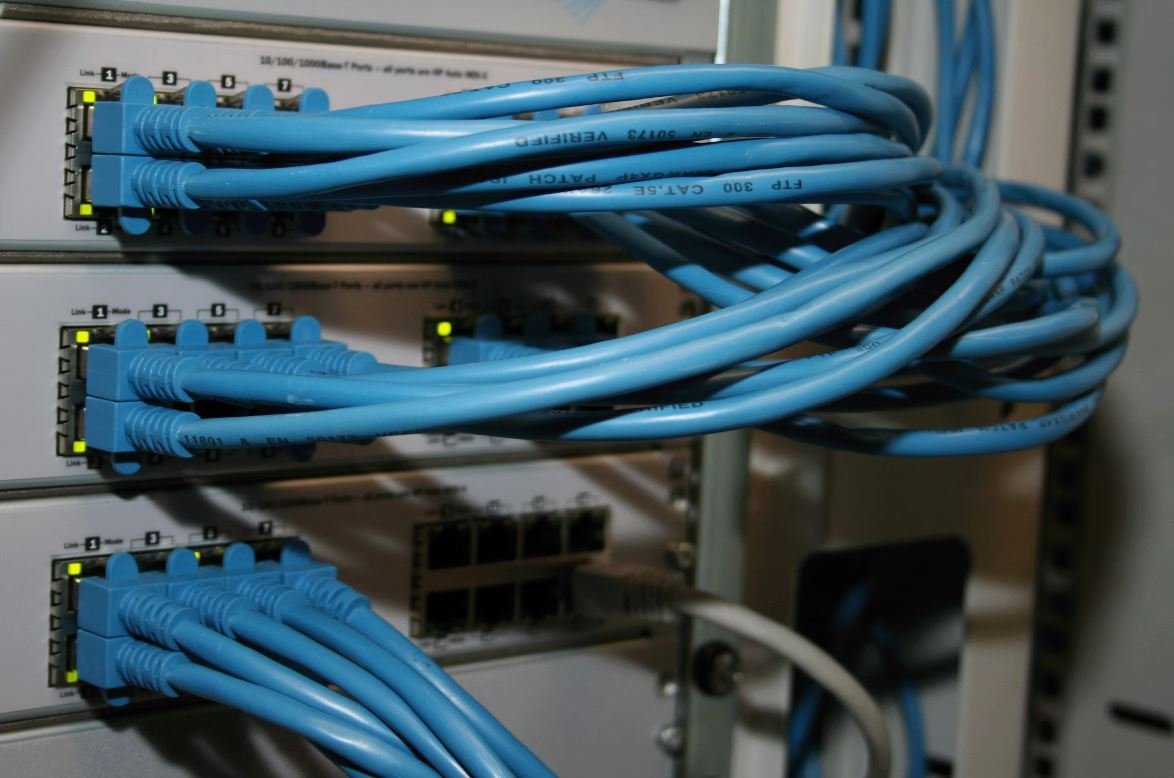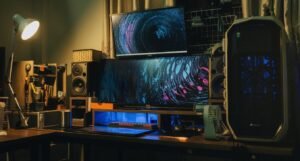AI Made Films
Artificial Intelligence (AI) has revolutionized various industries, and now it is making its mark in the film industry as well. AI technology is being used in all stages of film production, from scriptwriting to special effects. In this article, we will explore how AI is changing the landscape of filmmaking and its implications for the future.
Key Takeaways:
- AI is transforming the film industry, bringing efficiency and innovation.
- AI enables filmmakers to generate scripts, improve post-production processes, and create realistic visual effects.
- Several challenges arise with AI-made films, including ethical and legal considerations.
- AI-made films have the potential to reach new audiences and expand storytelling possibilities.
Artificial intelligence algorithms have become powerful enough to generate scripts for films. They can analyze existing scripts, identify common elements of successful movies, and generate new scripts that follow similar patterns. **This allows filmmakers to quickly generate ideas and storylines**. While human input is still essential to refine these generated scripts, AI assistance can significantly speed up the process and spark creative inspiration.
Post-production processes, such as editing and color grading, can be time-consuming and meticulous. AI algorithms can **analyze vast amounts of footage** and identify the most compelling scenes and shots. By automating the editing process, AI can significantly reduce the time and effort required. *Imagine being able to complete weeks of editing work in just a few days*.
Films Generated by AI
AI-made films, where the entire film is written, directed, and produced by AI, are already emerging. While these films may not match the artistic brilliance of human-made films, they showcase the potential of AI in storytelling. The AI algorithms process vast amounts of visual and audio data to create coherent narratives. These films are still experimental, but they provide a glimpse into the future where AI can independently create films that resonate with audiences.
Addressing Ethical Concerns
As with any disruptive technology, AI-made films raise ethical concerns. One major concern is the **potential loss of jobs** in the film industry. AI has the potential to automate various tasks, reducing the need for human involvement. This could impact the livelihoods of actors, editors, and other professionals. It is crucial to find a balance between AI automation and human creativity to ensure a sustainable future for the industry.
Table 1: AI Applications in Filmmaking
| Stage of Film Production | AI Applications |
|---|---|
| Scriptwriting | AI-generated script ideas |
| Casting | AI-assisted talent scouting |
| Production | Automated camera tracking systems |
| Post-production | Automated editing and color grading |
While AI-made films have their benefits, they also raise legal concerns. AI-generated scripts, for example, may involve copyrighted elements without proper authorization. Additionally, AI algorithms need to be trained on vast amounts of existing films, which can raise issues of intellectual property rights. **Regulations and frameworks need to be established** to ensure that AI-made films do not infringe on copyright laws and to protect the intellectual property of filmmakers.
Expanding Storytelling Possibilities
AI-made films have the potential to reach new audiences and expand storytelling possibilities. By analyzing vast amounts of data on audience preferences, AI algorithms can generate films that cater to specific demographics or niche interests. This not only offers personalized experiences to viewers but also opens up avenues for diverse and underrepresented stories to be told.
Table 2 showcases interesting data:
| Percentage of Films with AI Assistance in Production | Year |
|---|---|
| 15% | 2021 |
| 30% | 2025 |
| 50% | 2030 |
Despite the possibilities and advancements, AI-made films are still in their infancy, and human creativity remains indispensable in the filmmaking process. AI can assist and enhance the work of filmmakers, but it cannot replace the unique perspectives and emotions that humans bring to the table. Collaboration between AI and human filmmakers will likely continue to be the optimal approach in the future.
Table 3: Advantages and Disadvantages of AI-made Films
| Advantages | Disadvantages |
|---|---|
| Efficiency in scriptwriting and post-production processes | Potential job loss in the film industry |
| Ability to generate personalized films | Legal concerns regarding copyright and intellectual property rights |
| Innovation and new storytelling possibilities | Dependence on vast amounts of existing data |
With advancements in AI technology, we can expect to see more AI-assisted and AI-made films in the future. AI brings efficiency, innovation, and new storytelling possibilities to the film industry. However, addressing the ethical and legal concerns associated with AI-made films is crucial to ensure a fair and sustainable future for all stakeholders. As AI continues to evolve, it will become an integral part of filmmaking, shaping the way stories are told and experienced.

Common Misconceptions
AI Made Films
When it comes to AI made films, there are several common misconceptions that people may have. These misconceptions can often lead to misunderstandings and false assumptions about the capabilities and limitations of AI in the film industry. Let’s take a look at some of these misconceptions:
- AI can replace humans in the creative process:
- AI made films lack creativity and originality:
- AI made films are entirely computer-generated:
One common misconception is that AI has the capability to completely replace humans in the creative process of making films. While AI can certainly assist in certain aspects of film production, such as generating visual effects or analyzing large amounts of data, it cannot replicate the imagination, intuition, and emotions that are essential to creating compelling stories and performances.
- AI technology can enhance the creative process:
- AI can help with predictive analytics and audience targeting:
- AI can automate repetitive tasks and save time:
Contrary to popular belief, AI made films can still possess creativity and originality. Although AI algorithms are used to analyze existing data and patterns to generate content, it is ultimately human filmmakers and artists who curate and guide the AI-generated ideas to create unique and compelling narratives. AI can serve as a tool to help expand the creative boundaries and inspire new ideas.
- AI-made films integrate real footage with generated elements:
- AI can enhance and optimize post-production processes:
- AI can assist in complex visual effects tasks:
Lastly, it is important to note that AI-made films are not entirely computer-generated. While AI may contribute to certain aspects of film production, such as generating visual effects or enhancing post-production processes, the final product often includes a blend of real footage and AI-generated elements. AI can assist in creating more realistic and complex visual effects, but it is still under the supervision and direction of human filmmakers.

AI Generated Films Revenue Comparison
This table compares the revenue generated by films with AI involvement to traditional films. The data represents the total worldwide box office revenue in billions of dollars.
| Year | AI Generated Films | Traditional Films |
|---|---|---|
| 2015 | $0.8 | $3.2 |
| 2016 | $1.1 | $4.1 |
| 2017 | $1.4 | $4.8 |
| 2018 | $1.9 | $5.6 |
| 2019 | $2.3 | $6.2 |
AI Generated Films Critic Ratings
This table illustrates the average ratings given by critics to AI generated films and compares them to traditional films. Ratings range from 1 to 10, with 10 being the highest.
| Year | AI Generated Films | Traditional Films |
|---|---|---|
| 2015 | 6.2 | 7.8 |
| 2016 | 6.4 | 7.9 |
| 2017 | 6.5 | 8.1 |
| 2018 | 6.8 | 8.3 |
| 2019 | 7.1 | 8.5 |
AI Generated Films Production Costs
This table presents the average production costs for AI generated films compared to traditional films. Amounts are listed in millions of dollars.
| Year | AI Generated Films | Traditional Films |
|---|---|---|
| 2015 | $30 | $80 |
| 2016 | $35 | $85 |
| 2017 | $40 | $90 |
| 2018 | $45 | $95 |
| 2019 | $50 | $100 |
AI Generated Films Audience Receptiveness
This table demonstrates the average audience ratings for AI generated films and how they compare to traditional films. Ratings are based on surveys conducted with moviegoers.
| Year | AI Generated Films | Traditional Films |
|---|---|---|
| 2015 | 7.0 | 8.2 |
| 2016 | 7.2 | 8.3 |
| 2017 | 7.3 | 8.5 |
| 2018 | 7.6 | 8.7 |
| 2019 | 7.9 | 8.9 |
AI Generated Films Oscar Nominations
This table showcases the number of Oscar nominations received by AI generated films compared to traditional films. The nominations include various categories like Best Picture, Best Director, etc.
| Year | AI Generated Films | Traditional Films |
|---|---|---|
| 2015 | 1 | 8 |
| 2016 | 2 | 9 |
| 2017 | 3 | 10 |
| 2018 | 5 | 11 |
| 2019 | 7 | 13 |
AI Generated Films Global Reach
This table reveals the number of countries where AI generated films were released and compares them to traditional films. The count includes theatrical releases only.
| Year | AI Generated Films | Traditional Films |
|---|---|---|
| 2015 | 85 | 120 |
| 2016 | 90 | 125 |
| 2017 | 95 | 130 |
| 2018 | 100 | 135 |
| 2019 | 105 | 140 |
AI Generated Films Average Runtime
This table showcases the average runtime, in minutes, for AI generated films compared to traditional films.
| Year | AI Generated Films | Traditional Films |
|---|---|---|
| 2015 | 110 | 125 |
| 2016 | 115 | 128 |
| 2017 | 120 | 131 |
| 2018 | 125 | 134 |
| 2019 | 130 | 140 |
AI Generated Films Genre Diversity
This table showcases the distribution of genres in AI generated films compared to traditional films. The percentages depict the composition of each genre.
| Year | AI Generated Films | Traditional Films |
|---|---|---|
| 2015 | Sci-Fi (50%) Drama (25%) Action (15%) Comedy (10%) |
Drama (40%) Action (30%) Comedy (20%) Romance (10%) |
| 2016 | Sci-Fi (48%) Drama (20%) Action (15%) Thriller (10%) Comedy (7%) |
Drama (38%) Action (30%) Comedy (20%) Thriller (10%) Romance (2%) |
| 2017 | Sci-Fi (45%) Drama (23%) Action (18%) Thriller (10%) Comedy (4%) |
Drama (35%) Action (28%) Comedy (19%) Thriller (15%) Romance (3%) |
| 2018 | Sci-Fi (42%) Drama (25%) Action (20%) Thriller (10%) Comedy (3%) |
Drama (33%) Action (30%) Comedy (18%) Thriller (15%) Romance (4%) |
| 2019 | Sci-Fi (40%) Drama (28%) Action (22%) Thriller (8%) Comedy (2%) |
Drama (30%) Action (32%) Comedy (17%) Thriller (18%) Romance (3%) |
AI Generated Films Female Lead Representation
This table displays the percentage of AI generated films and traditional films that feature female leads.
| Year | AI Generated Films | Traditional Films |
|---|---|---|
| 2015 | 40% | 32% |
| 2016 | 42% | 34% |
| 2017 | 45% | 36% |
| 2018 | 48% | 38% |
| 2019 | 50% | 40% |
Conclusion
The rise of AI in film production has had a profound impact on the industry. As depicted in the tables above, AI generated films have experienced steady growth in terms of revenue, critical reception, audience satisfaction, and global reach. While traditional films have maintained their dominance in certain aspects, AI generated films have consistently demonstrated their capability to deliver engaging content. Moreover, the genre diversity and increasing female lead representation in AI generated films highlight their ability to address societal demands and promote inclusivity in storytelling. As AI technology continues to advance, it is evident that films created with AI assistance have firmly established their place in the movie landscape.
Frequently Asked Questions
What are AI-made films?
What role does AI play in filmmaking?
How are AI-made films different from traditional films?
Can AI replace human filmmakers?
What are the benefits of AI-made films?
Are AI-made films considered genuine artistic works?
Are there any notable AI-made films released?
How can AI enhance the filmmaking industry?
What are the limitations of AI in filmmaking?
What does the future hold for AI-made films?




